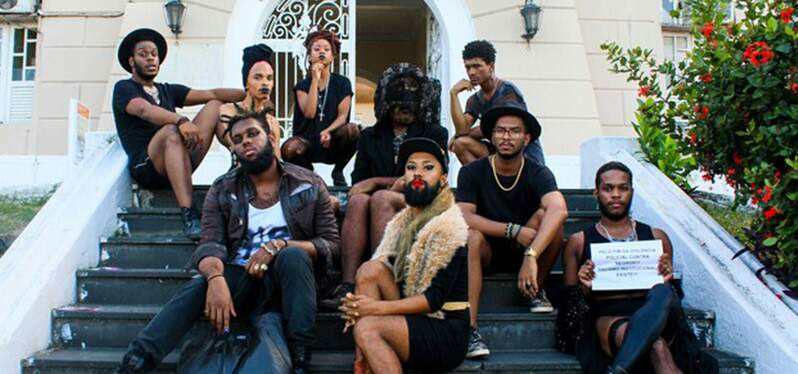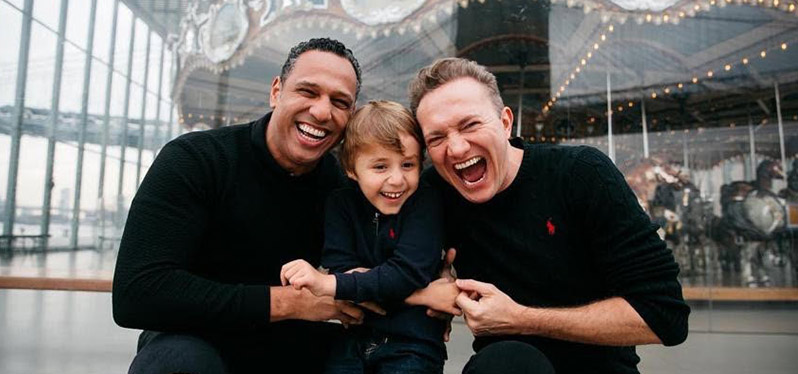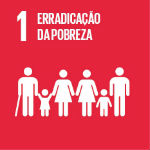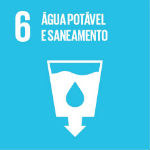Posted in: 06/28/2021

Social and professional equity, fundamental rights, and freedom of speech and opinion should be basic principles ensured by any democratic form of government, for any person. But this is not exactly the case, especially when we talk about lesbian, gay, bisexual, transgender and cross-dresser people, queers, intersex, asexual, and other genders and sexualities.
When we think about Intersectionality issues, the situation is even more serious, considering the overlapping of discriminations that can occur by people’s social class, gender, sexual orientation, race, ethnicity, or religion.
Oppressions can be decisive in social relationships and in various areas of the life of those who decide to assume their sexuality. They impede inclusion and growth in the labor market, cause psychological and emotional upheaval, and most importantly, put the lives of thousands of LGBTQIAP+ people at risk every day.
For this group, simple rights, freely guaranteed to heterosexuals, such as forming a family through a common-law or civil union and being able to adopt a child, only came after many centuries of struggle and demands.
Therefore, dates such as the International LGBTQIAP+ Pride Day are important to raise awareness and reinforce the need for respect and equality, strengthening the fight and giving visibility to the cause with the aim of guaranteeing rights and public policies that serve this part of the population.
And when we talk about the rights of the LGBTQIAP+ population, Brazil is far from being the ideal scenario. Data from the Brazilian Unified Health System (SUS), compiled in a study by Fiocruz, show that every hour an LGBT person is assaulted in Brazil. And this fact should be much higher than the one registered, because a survey conducted in 2020 by the Brazilian Center for the Defense of Human Rights (Centrodh) indicates that of 391 reports of violence against LGBTs in Federal District, only 39 were investigated as homotransphobia.
Three of the main protection laws involving the homosexual community in the country are recent: the recognition of common-law marriage, civil union, and the right to adoption.
This year we celebrate the tenth anniversary of the recognition of the homoaffective common-law marriage by the Brazilian Federal Supreme Court, on May 5th. Yes, it is only ten years since the guarantee of equal rights for same-sex couples, assuring them the same benefits given to couples in heterosexual relationships.
In 2011, when the Federal Supreme Court created jurisprudence for the recognition of common-law marriage, loopholes in the decision and the lack of specific regulations still favored the denial of couples’ requests for civil union. The problem was only solved in 2013, with the publication of Resolution 175, which made it impossible for the competent authorities to refuse to perform civil marriage and common-law marriages.
According to a survey conducted by Ibope at the time of the Federal Supreme Court decision, in 2011, 55% of the Brazilian population was against adoption by same-sex couples, just as they were against common-law marriage. The conclusion of the survey, at the time, was that Brazilians had “no restrictions in dealing with homosexuals in their daily lives, such as professionals or friends who are homosexual, but were still resistant to measures that could denote some kind of support from society to this issue.
If the Federal Constitution has always condemned any type of discrimination due to sex, race, religion, and color, not legitimizing homoaffective relationships would be inconsistent with its articles 3 and 5, thus demonstrating the discrimination and prejudice against homoaffective unions present in those who position themselves contrary to this right.
It is important to note that changes in laws also bring about changes in society’s behavior. A survey conducted by the IBOPE Conecta Institute in 2019 showed that at the time almost half of Brazilian internet users (53%) were in favor of same-sex civil union, a percentage that in 2013 was 47%, according to a survey by the same group.
The recognition of the homoaffective stable union has provided the opportunity for civil marriage and guaranteed social security, inheritance, and labor rights, among others.
Get to know some of the legal guarantees assured:
Above all, the recognition has brought a sense of equity in at least one area of the lives of people who have to struggle daily to be seen, accepted, and respected as they are, just as it should be for any human being, regardless of color, ethnicity, or sexual orientation.
According to IBGE data released in 2019, since 2013 the number of same-sex civil marriages has increased steadily, taking a significant leap between 2017 (with 5,887 unions) and 2018 (with 9,520), when it grew by 61.7%. In comparison, the total number of marriages decreased by 1.6%.
In general IBGE data, in 2018 women were the biggest responsibles in the growth of homoaffective civil unions, accounting for the 64.2% increase, while marriages between men grew by 58.3%. Even so, homoaffective marriage accounted for only 0.9% of the total number of unions registered in Brazil.
As we have seen, the recognition of common-law marriage and the validation of civil marriage have guaranteed some rights for homosexual couples, among them the possibility of adopting children and teenagers.
Although the adoption by people over 18 years old, regardless of marital status, was already allowed in Brazil, for a joint adoption it was indispensable to prove the civil union and family stability of the adopters. The measure, of course, represented a major restriction for gay couples intending to adopt.
Since the recognition of stable unions, and especially civil unions, homosexual unions have been officially considered a family, capable of receiving a child or adolescent in a legally protected manner, equivalent in rights and duties to heterosexual couples.

It is worth remembering that it was only in 2015 that same-sex adoption was effectively recognized, and authorized without absurd restrictions such as the child’s age. This happened after the minister Cármen Lúcia, from the Federal Supreme Court, decided in favor of the adoption by a homoaffective couple that was facing a denial of appeal by the Federal Prosecution Office of Paraná, in an adoption process that had been dragging on for 10 years.
The National Adoption and Fostering System (SNA) does not disclose specific information about the sexual orientation of couples and single persons responsible for adoptions in Brazil. This hinders the development of research on same-sex adoption, as well as the consolidation of data. However, the non-disclosure reaffirms the proposition of the Brazilian legislation, for which there are no distinctions between adoption between homosexual and heterosexual couples.
The decisions that involve the LGBTQIAP+ community, and have a direct impact on their lives, have for long years been proposed and made by people outside the community. This has delayed the process of acceptance and the development of laws and public policies that guarantee inclusion, respect, and safety.
Although the current national political scenario brings uncertainties and even fears about the retrocession of laws that have already been approved, the hope of the LGBTQIAP+ community needs to be maintained in building representation, maintaining resistance, and strengthening the cause.



Sign up and receive our news.